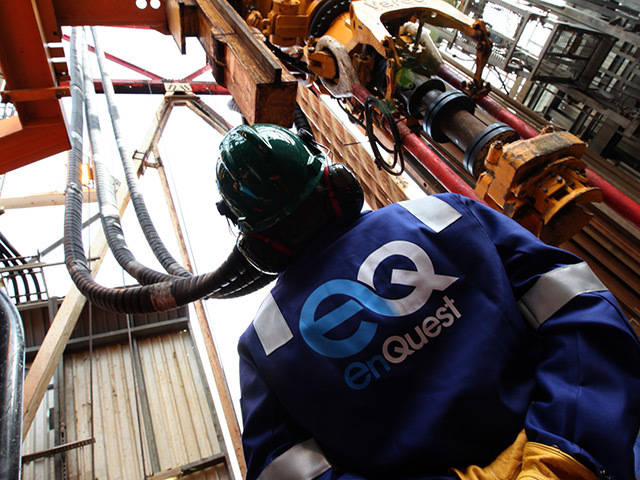
Bosses at EnQuest said yesterday that avoiding “North Sea premiums” had helped the firm bring down its operating costs to $23 per barrel in the first half of 2016.
They said moving procurement operations to the Middle East had helped EnQuest lower costs and slash delivery times.
And they revealed EnQuest had stripped another £110million off the price of the Kraken field east of Shetland, which is on course to start production in the first six months of next year.
The farm out of a 20% stake in Kraken to Israel’s Delek Group is still in the balance, meanwhile.
Last week, Delek said negotiations were at an advanced stage, but EnQuest chief executive Amjad Bseisu said yesterday that nothing had been concluded yet.
“We are still in discussion,” he said. “We will either reach a deal or we won’t.”
Mr Bseisu was speaking after the company released its first half results, which showed net debts of £1.26billion, up from £1.16billion at year end.
Neil McCulloch, EnQuest’s president, North Sea, said the firm was doing everything it could to cut the debt pile and expected to be “in a better place” in future.
The company said in its financial report that it was pursuing a number of additional funding options and that discussions with creditors and debtors had been “constructive”.
Mr McCulloch said a lot of progress had been made on the operational side, with unit opex shrinking to $23 per barrel, 50% lower than in the first half of 2014.
The figure is expected to end the year at between $25 and $27 per barrel, before falling back to the low $20s once Kraken – one of the UK’s biggest oil prospects – is fully onstream.
For its full life cycle, Kraken is likely to break even with a Brent crude price of above $40, according to Mr Bseisu.
EnQuest holds the operatorship and 70.5% of Kraken, while Cairn Energy has 29.5%.
Mr McCulloch said changing the firm’s procurement strategy had played a part in cutting operating costs.
He said EnQuest had employed experienced professionals at its base in Dubai, a city he described as an “international procurement hub” for the oil industry.
“We can access markets in a way we could not in Aberdeen,” Mr McCulloch said. “We’re still buying from the same global supply companies but from a different access point.”
Mr McCulloch said Enquest was now able to take delivery of a valve, for example, in three days through Dubai, compared to eight weeks via the local supply chain.
“We’re getting the same valve from the same supplier with the same certification we normally use, but now we’re avoiding the North Sea premium,” Mr McCulloch said.
EnQuest, whose first half pre-tax profits rose by £54million to £62million, though revenues fell 11.9% – also benefitted from early engagement with the supply chain, and industry-led inventory sharing schemes, Mr McCulloch said.
Furthermore, production grew 43% year-on-year to 42,520 barrels a day, offsetting the impact of low crude prices.
Full-year capital expenditure is expected to drop by £22.5million to between £500million and £540million.
Recommended for you

